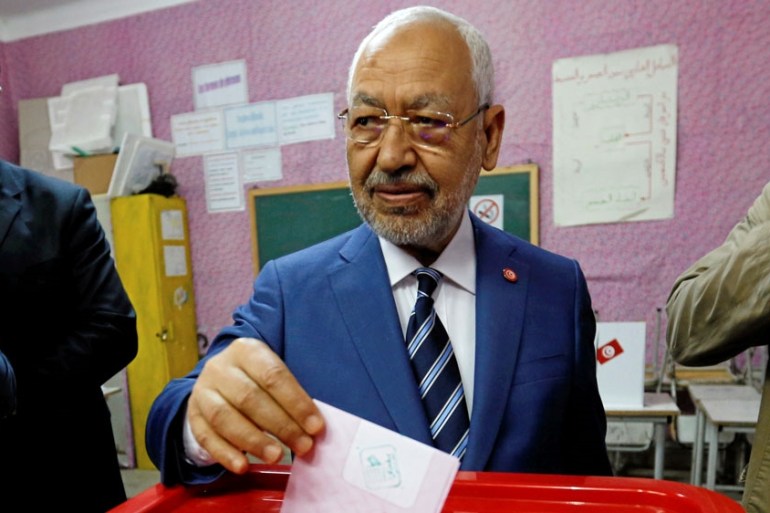A Tunisian court has handed a three-year prison sentence to opposition leader Rached Ghannouchi. He is accused of receiving foreign contributions for his Ennahda Party. The court, which specializes in financial corruption cases, has also imposed fines on Ennahda. Ghannouchi’s son-in-law, Rafik Abdessalem, a former foreign minister, has also been sentenced to three years in jail. The sentencing comes amidst a crackdown on dissent in Tunisia.
Ghannouchi, 82, a former speaker of the Tunisian parliament, was arrested last year and was previously sentenced to one year in jail on separate charges of incitement. Human rights groups have criticized his detention and accused President Kais Saied’s government of repressing political opposition.
Amnesty International highlighted the use of repressive laws by Tunisian authorities to suppress dissent and arrest opposition figures. The organization expressed concern over the growing crackdown on human rights and opposition in the country.
President Saied, who took office in 2019, has consolidated his power by freezing the Tunisian parliament in 2021 and later dissolving it, ruling by decree. The legislative elections held in 2022 witnessed low turnout due to an opposition boycott. Saied also successfully pushed for a constitutional referendum that expanded presidential powers.
Critics argue that Saied’s actions resemble a “coup” and risk bringing back the authoritarianism of the pre-2011 uprising that toppled former Tunisian leader Zine El Abidine Ben Ali. Human Rights Watch notes that Saied has undermined the independence of the judiciary and intensified the crackdown on political opponents and critics.
The government’s actions are justified by Saied as an effort to combat corruption and incompetence within the government. Ennahda, once one of Tunisia’s largest parties after the 2011 uprising, saw its headquarters in Tunis closed down by the government last year.

